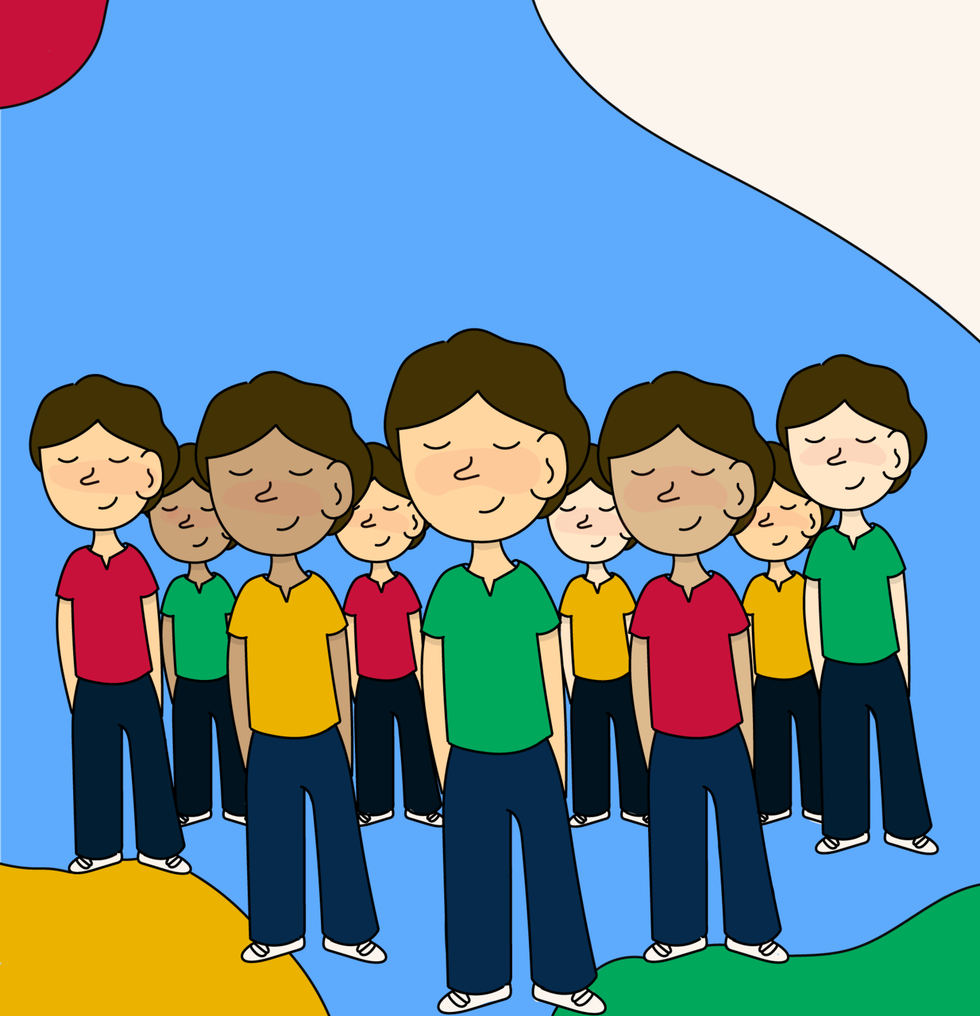Beware of the "Projection Bias" : it has you hiring an army of clones
Feb 10, 2020
2 mins


Our cognitive biaises have a huge impact on the decisions that shape human resources. With this series, we aim to provide short and insightful articles to help you identify the biases, understand how they affect HR, and what to do to address them.Today, discover the “projection bias.”
What is it?
No matter what information we receive, we will interpret it in a way that matches what’s already familiar to us. The projection bias refers to our tendency to project current preferences into the future as if future tastes will always be the same as current ones. But we also tend to project our own preferences—opinions, values, and tastes—onto other people. We see ourselves in others. It is linked to another bias known as the confirmation bias, the tendency we have to search for, interpret, favour, and recall information in a way that reaffirms our prior beliefs and hypotheses.
Our self-centredness leads to evaluate other people’s behaviour based on our own behaviour. We overestimate the extent to which other people agree with us. That’s sometimes referred to as the false-consensus effect, a bias whereby people tend to overestimate the extent to which their own opinions, beliefs, preferences, values and habits are typical. The effect occurs in groups when a consensus seems to have emerged: people from the group tend to believe everybody (even outside the group) agrees with them.
There are psychological and anthropological explanations for this bias. Humans have a profound desire to conform to the group, to be loved by others and to belong. The bias contributes to higher self-esteem. It is very common in groups that feel representative of the overall population and that are very visible in the media. But even in minority groups (like religious fundamentalist groups, for example), people tend to overestimate the number of other people who share their world vision. When you are faced with somebody who thinks differently, you see him/her as “flawed”, i.e. a non-representative anomaly.
In general, the bias leads us to base our decisions on too little information and to use current, personal experience and knowledge to make generalisations about others (and our future selves).
What does it mean for human resources?
In terms of recruitment, projection bias, confirmation bias and false-consensus bias reinforce homogeneity. These biases make it harder to have ethnic, cultural, or gender diversity in an organisation. That’s how the “army of clones” typical of some companies can be accounted for.
Recruiters who aren’t cautious enough will unconsciously favour the candidates they can identify with, simply because they share a hobby, an opinion or a lifestyle choice. In other words, they will let themselves be seduced by a candidate for reasons that are unrelated to that candidate’s ability to do the job.
How can it be overcome?
It is critical to rely on “structured” interviews, i.e. to ask every candidate the exact same questions so as not to let one common characteristic dominate the interview. It is also important to learn to ask open-ended questions. To find out more on the subject, read our must-read article about Who: The A Method for Hiring by Geoff Smart and Randy Street. Collegiate recruitment decisions, made by a diverse group of people (men and women of different ages and backgrounds) will make it easier to promote diversity and neutralise each recruiter’s individual biases. Conversely, if the group of decision-makers is homogeneous then the biases will be reinforced rather than neutralised.

More inspiration: Laetitia Vitaud
Future of work author and speaker

Age does matter, at work and in the White House
What we've learned from the 2024 presidential elections about aging at work.
Sep 09, 2024

Can companies avoid a brain drain as retirements surge?
Bye bye, Baby Boomers. Hello, knowledge exodus?
Jun 12, 2024

Workplace anxiety: Navigating the future of work in an anxious world
Anxiety has taken center stage in our modern world. How is it shaping the future of work? And most of all, what can we do about it?
May 20, 2024

Why recruiters should hire more ex-freelancers
While freelance and salaried work can seem worlds apart, they may have more in common than you think.
May 02, 2024

How women over 50 are reinventing their careers and the future of work
Women in their 20s struggle to be taken seriously, while middle-aged women battle discrimination... So how are women over 50 reinventing the wheel?
Apr 02, 2024
Inside the jungle: The HR newsletter
Studies, events, expert analysis, and solutions—every two weeks in your inbox

